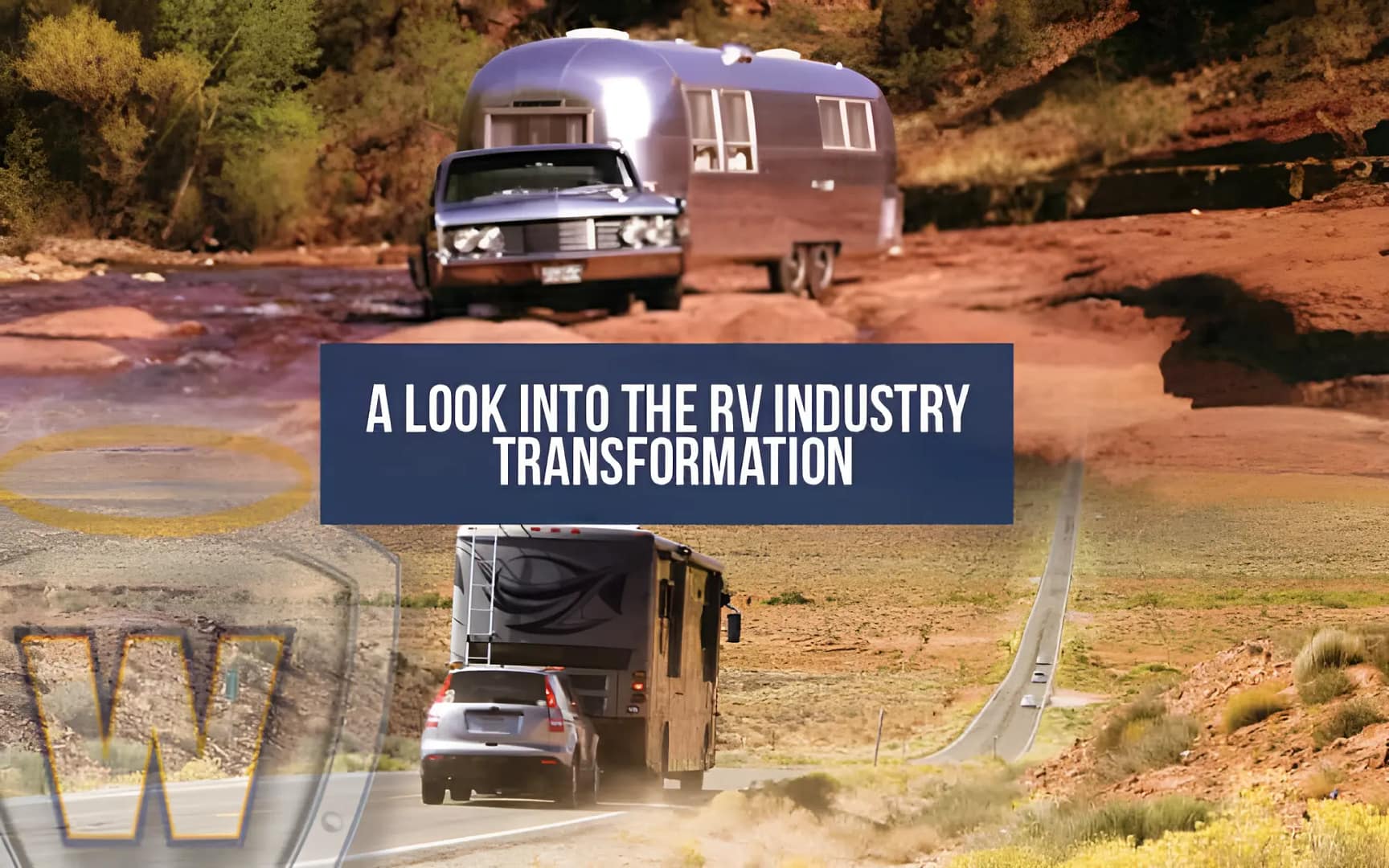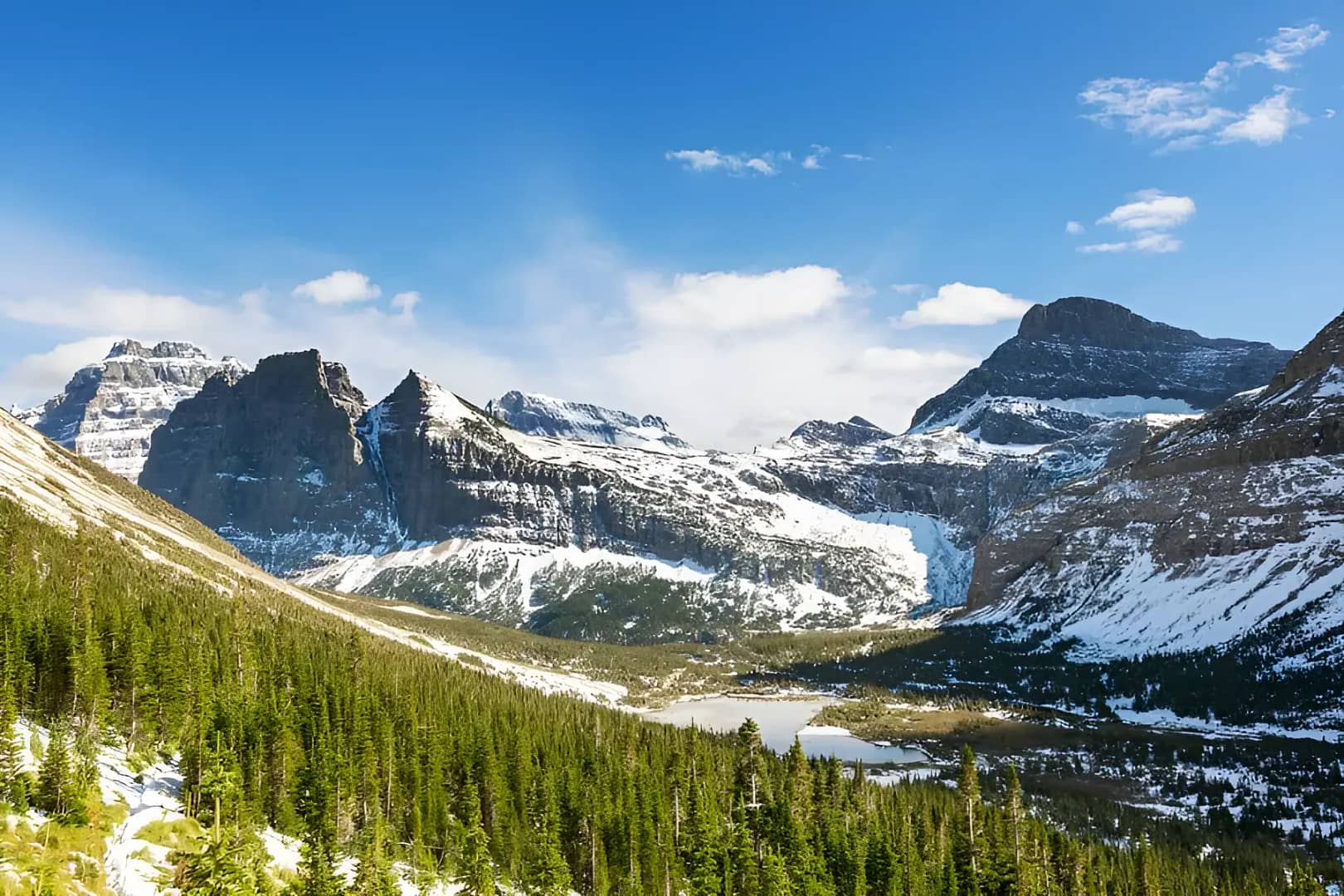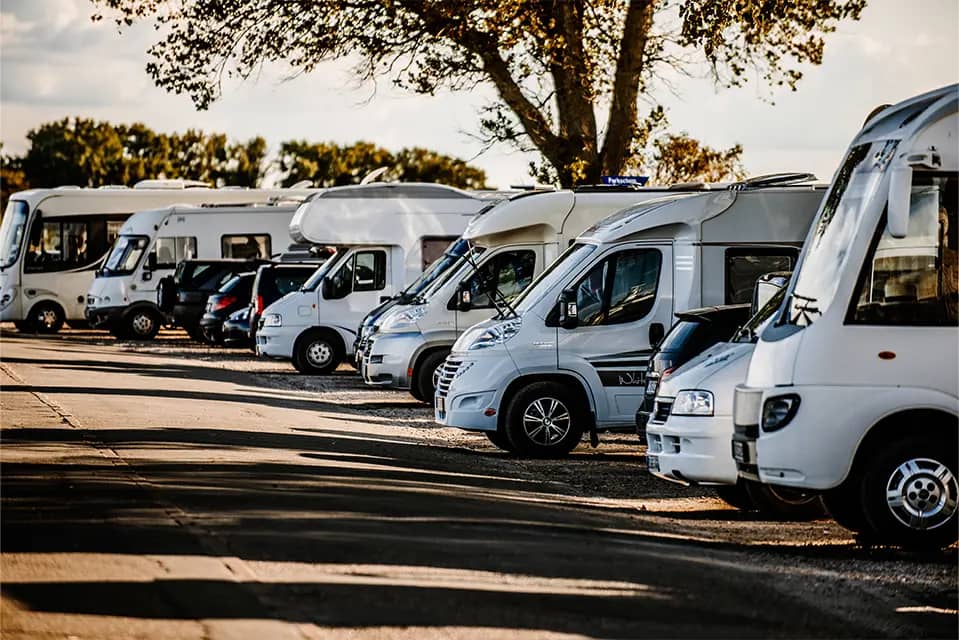Since Wholesale Warranties’ inception 15 years ago, the RV industry has done a 180. We sat down with our CEO, Jeff Shelton, to get his perspective on this ever-changing market and reflect upon over a decade of RV industry shifts.
As the founder and CEO of Wholesale Warranties, Jeff’s had a good eye on how things have changed. The future of the RV industry will come with its own shifts, and in this post, Jeff forecasts what that will look like for RVers.
Prefer a video? Check out this clip for a full recap:
You started Wholesale Warranties full-time in 2008 during the recession. What was the RV industry like at that time?
Jeff: It was a disaster. Prior to starting Wholesale Warranties direct to consumer, I would set up dealerships with extended warranty programs. Most of these dealerships went out of business.
It was an interesting time because not only did you have the worst economic recession that we’ll (hopefully) see in this lifetime, but gas prices were extremely high. This created a challenging environment for the industry, with unexpected results.
I remember dealerships that were huge conglomerates with multiple stores lose everything in the years leading up to 2008. It was a wakeup call for everyone in this business.
You mention a lot of RV manufacturers going out of business. How do you think that changed the industry as a whole, and specifically, within the warranty market?
Jeff: A lot of the business for Wholesale Warranties came from the orphaned RVs that no longer had manufacturer warranties available.
People who had purchased new rigs directly from a factory wanted some sort of protection in place. That was the first major introduction for aftermarket warranties in the consumer market.
Prior to the recession, I remember stressing the importance of insurance backed warranties to the dealerships. I would explain that when an insurance carrier is backing the policy, it’s actually more secure than the manufacturer’s warranty.
That’s because if a manufacturer goes out of business, there’s no one to take on the financial burden to pay claims, leaving orphaned RVs.
I explained this as a theoretical scenario at the time, because no one actually believed a manufacturer of this size would go out of business, so when they did, it was an unbelievable situation.
Prior to when I began working in the RV industry, the only place you could get a warranty was through the dealership, who marked up the policies as they saw fit.
As consumer reports and industry experts recognized the mark-up, people started to decide against the purchase. As more competitors entered the market, that high markup became less commonplace.
Following the recession, there have been good regulations put in place that have kept a lot of the bad apples from selling RV warranties. It’s becoming a more dominant product with more competition because you’re able to get such a good price on them.
How have you seen physical RVs change during your time at Wholesale Warranties?
Jeff: RVs have continually advanced with more technology. Every year I’ve seen things that I wouldn’t have thought possible 10 years ago. It’s additions as simple as electric shades that close when it gets to a certain temperature, or batteries automatically firing up the generator to recharge when they’re low.
The solar power, fuel efficiency, and emissions today are all more efficient in motorhomes. We’re also seeing a lot more home unit refrigerators instead of the typical RV units that ran on propane and broke down often. The technology is rapidly expanding.
How do you think these technologically advanced units will affect warranties?
Jeff: The more complex a unit is, the more expensive it is to fix. As these technologies evolve, the parts and components will be more technical and more challenging to repair. Warranties have always been a big part of consumers feeling comfortable dealing with the complexities in price and labor hours of these repairs.
When you work with a warranty company, you have industry experts that know the amount you should be paying. If they come across an amount that’s higher than the average, they’ll negotiate on your behalf, simplifying the process for you and ensuring you only pay your deductible. This makes it more important than ever to have adjustors double checking the prices charged.
More recently, we’ve seen a peak in RVs being sold. What do you think has caused the increased interest?
Jeff: The RV lifestyle has a lot to do with the increased ability to work remote. That was my dream when I came out to California. I wanted to travel and be able to run this business remotely from my RV. As I started to expand, I realized I needed additional employees to help in an office.
In addition to increased remote jobs in this digital age, baby boomers are retiring at a fast rate and now wanting to travel. RVs make that an easy avenue where they can also bring the comforts of home, like their pets, while exploring the sites that America and Canada have to offer.
2018 was the peak for RV sales, and in 2019 it started to decline – why do you think that is?
Jeff: I don’t think it’s a decline as much as a correction. The industry has peaks and valleys. 2018 was an incredible year, but it’s not sustainable to sell that many RVs continuously.
Now the industry is correcting itself to what is probably a healthy and normal number of RVs to be sold. The industry seems to still be going strong, and hopefully, that will continue for years to come with some more spikes and maybe a few valleys.
How do you think the RV industry will evolve in the future?
Jeff: With more RVs and campgrounds than ever, the infrastructure will dictate where the market goes. I think you’ll find that the best infrastructure in the world is here in the United States.
If you go anywhere outside of the country, you don’t see RVs like you do here. You might see some minivans or small campers, but you’re not seeing big rigs or large Class A motorhomes.
As more and more places are able to equip the RV lifestyle, I see it continuing to grow. It’s a unique experience unlike any other that allows you to explore the country and bring everything with you. RVing has been around for a long time, and it’ll be here for a long time.
You’re stationary now, but do you see yourself hitting the road again in the future?
Jeff: I’m looking at some Class B’s to rent because of how compact they are. A lot of the places across the country are hard to get in and out of. On the other hand, if I were to bring a lot of friends with me, I’d maybe rent a Class A.
Renting is a good way to decide what your personal preferences are before deciding to purchase. I’m going to experiment with renting a little bit, and then if I have a perfect plot of land that I can put a trailer on, I’ll get into worrying about buying an RV again.
What industry changes have you seen since you started RVing? Leave a comment and let us know!
RV Extended Warranties
Get a free quote for an RV Extended Warranty today.




